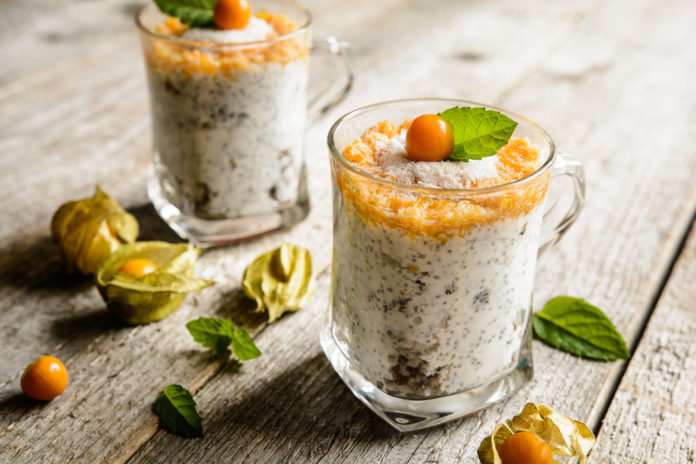What Is Leaky Gut?
Whereas sound evidence and knowledge lacks the specifics of leaky gut syndrome, researchers suggest the condition relates to intestinal permeability in which tight junctions lining the intestinal wall do not work properly. Nonetheless, the compromised barrier may allow harmful toxins and bacteria to “leak” out from the gut and into the bloodstream. There are multiple theories of the underlying causes of leaky gut, including a genetic predisposition, poor diet, and bacterial imbalance.
Despite the unknown cause and solidified treatment of leaky gut, individuals often experience digestive-related symptoms, including abdominal pain, bloating, gas, and diarrhea, along with skin issues, migraines, anxiety, depression, joint pain, fatigue, and insomnia. Various inflammatory medical conditions, including Celiac disease, arthritis, autoimmune diseases, and allergies, often occur simultaneously with leaky gut syndrome.
Ultimately, if displaying these sort of symptoms, health experts encourage individuals to get tested for malabsorption conditions, which may include stool, blood, and breath hydrogen tests. Identifying food allergies, sensitivities, and/or intolerances can help determine the underlying cause of leaky gut. But with so much more to be known about the condition, establishing a tried and true leaky gut syndrome diet and treatment methods can be tricky. However, and while individuals should consult with a healthcare provider before following any sort of diet for the upmost safety, nutrition experts suggest some foods may be better than others in healing a leaky gut.
Healing Leaky Gut with Diet: The Best and Worst Foods
Worst Foods for Healing Leaky Gut
1. Gluten
Gluten is a protein naturally found in wheat, barley, and rye and their associated products such as wheat pasta and rye bread. While gluten has proven to not always be the bad guy, removing gluten can help heal leaky gut and intestinal damage especially if diagnosed with Celiac disease.
2. Dairy Products
Similar to individuals with Celiac disease reacting adversely to gluten, those with a dairy allergy or lactose intolerance are urged to eliminate milk, yogurt, cheese, and other dairy products to lessen inflammatory effects of the intestine.
3. Lectins
Lectins are indigestible carb-binding proteins that travel through the gut unchanged and are thought to reduce the body’s ability to absorb beneficial nutrients. Though lectins are poorly understood, researchers speculate they can bind to cells on the gut wall and trigger leaky gut, particularly if consumed in large amounts. Nonetheless, lectins are a group of compounds primarily found in plants, including grains, beans, and nightshade vegetables, and thought to be the plant’s defense mechanism against prey.
4. Refined Sugars and Artificial Sweeteners
The negative consequences of high-sugar diets are well-known, including the increased risks of obesity, diabetes, and other chronic health conditions. But there is some assumption sugar can derail the process of healing leaking gut, as sugar can essentially feed unhealthy bacteria and promote inflammation of the gastrointestinal lining. And whereas artificial sweeteners are often used as a more health-conscious effort, they may cause digestive distress and changes in the gut microbiome.
5. Refined Vegetable Oils
Refined vegetable oils, including sunflower, safflower, and soybean oils, are rich in pro-inflammatory omega-6 fatty acids. These sort of oils can cause systemic inflammation and damage to the intestinal lining.
Best Leaky Gut Foods to Eat
6. Bone Broth
Bone broth has been highly sought out to restore the gut and strengthen intestinal lining, particularly related to the collagen and amino acid content produced by simmering the bones. Learn how to make your own bone broth here!
7. Probiotics
Probiotics are notorious for their restoration in gut health, as they help balance the microbiome and improve digestion and absorption. Whereas probiotics are commonly found in dairy yogurts, those limiting dairy can find probiotics in coconut and almond milk yogurts, sauerkraut, kimchi, and other fermented foods.
8. Cooked Fruits and Veggies
Fruits and veggies are full of fiber and other nutrients proven to combat against inflammation. But the tough fiber in raw produce can be harsh on a weakened digestive system, though cooking and streaming fruits and veggies can soften fibrous skins and be gentler on the intestinal tract.
9. Healthy Fats
The inclusion and moderation of healthy fats in the diet, including avocadoes, egg yolks, and olive oil, can protect against inflammation of the gastrointestinal lining. And unlike pro-inflammatory omega-6 fatty acids, omega-3s are touted to combat against inflammation and are sourced from fatty fish, grassfed beef, walnuts, and olive oil.






